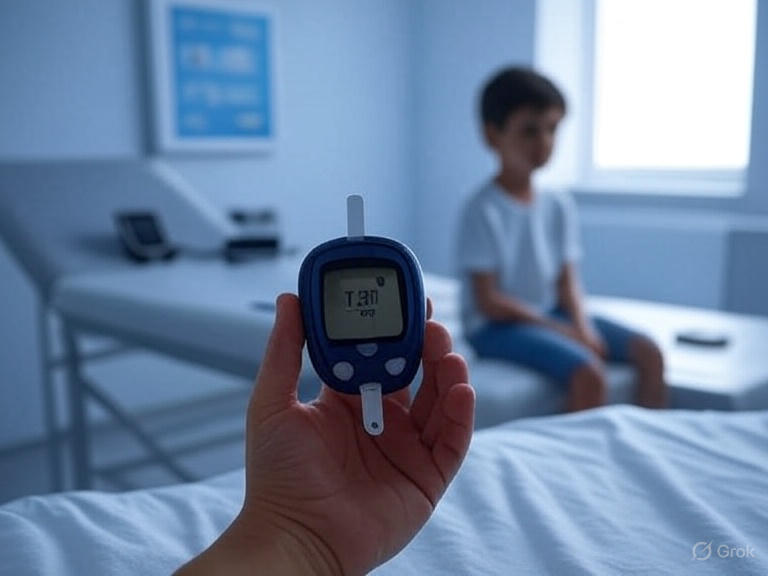
Treatment options for children and adolescents with type 2 diabetes mellitus (T2DM) are limited. Canagliflozin, a sodium–glucose cotransporter-2 inhibitor, is approved for T2DM in adults but requires evaluation in younger populations. The objective was to evaluate the efficacy and safety of canagliflozin in children and adolescents with T2DM.
In a phase 3, randomized, double-blind, placebo-controlled study (NCT03170518; EudraCT: 2016-005223-88), 171 participants aged ≥10 years with T2DM (HbA1c ≥6.5% to ≤11%) from 104 sites across 10 countries were assigned to canagliflozin 100 mg (n=84) or placebo (n=87) daily for 52 weeks. At week 13, participants with HbA1c ≥7% and estimated glomerular filtration rate ≥60 mL/min/1.73 m² were re-randomized to continue 100 mg or uptitrated to 300 mg (or placebo). The primary efficacy endpoint was HbA1c change from baseline to week 26; secondary endpoints and safety were also assessed.
At week 26, canagliflozin significantly reduced HbA1c compared to placebo (least-squares mean difference, −0.76% [95% CI, −1.25% to −0.27%]; P=0.002). A significantly higher proportion of canagliflozin-treated participants achieved HbA1c <6.5% (36.3% vs. 14.0%; difference, 22.3 percentage points [CI, 10.5 to 34.1]). Treatment-emergent adverse events (AEs) occurred in 77.4% of canagliflozin and 74.7% of placebo recipients, with serious AEs in 9.5% and 5.7%, respectively. Hypoglycemia rates were similar (11.9% vs. 10.3%). The AE profile mirrored that in adults, with no new safety concerns identified. Study limitations included a 52-week duration and relatively small sample size, potentially limiting generalizability.
Canagliflozin significantly improved glycemic control in children and adolescents with T2DM, with a safety profile consistent with adult studies. These findings support canagliflozin as a viable treatment option for pediatric T2DM, though further studies are needed to confirm long-term outcomes.
Source: https://www.acpjournals.org/doi/10.7326/ANNALS-24-04017

